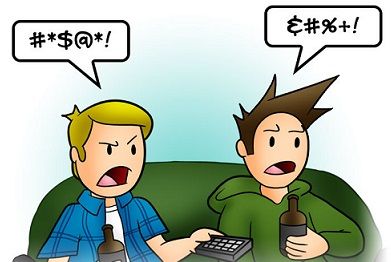As if echoing the lament of adults though the ages, a new poll reveals that the language and way kids interact with each other is much coarser nowadays than it used to be.
In a Megafon poll for TV2, two out of three Danes said they felt the general tone in the public arena had become much rougher recently. The same poll also revealed that 67 percent felt that the tone between children was much harder today than it was ten years ago.
A lot of schools are worried, as even six-year-olds these days have a vocabulary of obscenities that was hitherto the province of dockers. They swear at each other and also at the teachers, reports TV2 Nyheder.
A job for parents
Parents must shoulder some of the blame. “Kids mirror our behaviour, so we play a major role and can’t just palm the responsibility off on teachers,” said June Lindholm, the parent of a child at Langeskov school.
Amongst the kids at the school, epithets such as “fucking shit” and “fuck you” are commonly bandied about between the children.
“When I started 15 years ago, I was never on the receiving end of obscenities,” said Jørgen Ebsen, a teacher at the school’s preschool class.
“I wasn’t told by kids that they would make sure I was fired either, or that I should drop dead or have my arms cut off. This is something that has appeared over the last couple of years,” he added.
READ ALSO: More teachers subjected to classroom violence, figures show
A range of influences
The Danmarks Lærerforening teachers’ association is aware of the problem.
“It is tempting to say that things have always been like this, but children these days have access to a range of different swear-words to the ones they had ten years ago,” said the head of the organisation’s education committee, Jeanette Sjøberg.
“Children hear words from games, films and YouTube and are influenced by them.”
Just words
Jørgen Ebbesen also points to another aspect. A lot of the words are co-opted from English. “Often, kids just don’t understand the meaning of the words they are saying. It might just be for fun, but if it’s repeated and said with an aggressive attitude, it’s no longer amusing for the person on the receiving end.”
The consensus seems to be that the only way to deal with the problem is through a combined effort between the parents and the schools – however difficult that might appear.
As another of the parents at Langeskov School pointed out: “I also swear sometimes, both in traffic and when I’m training my boys on the football pitch, but I do try to be a good role model.”














